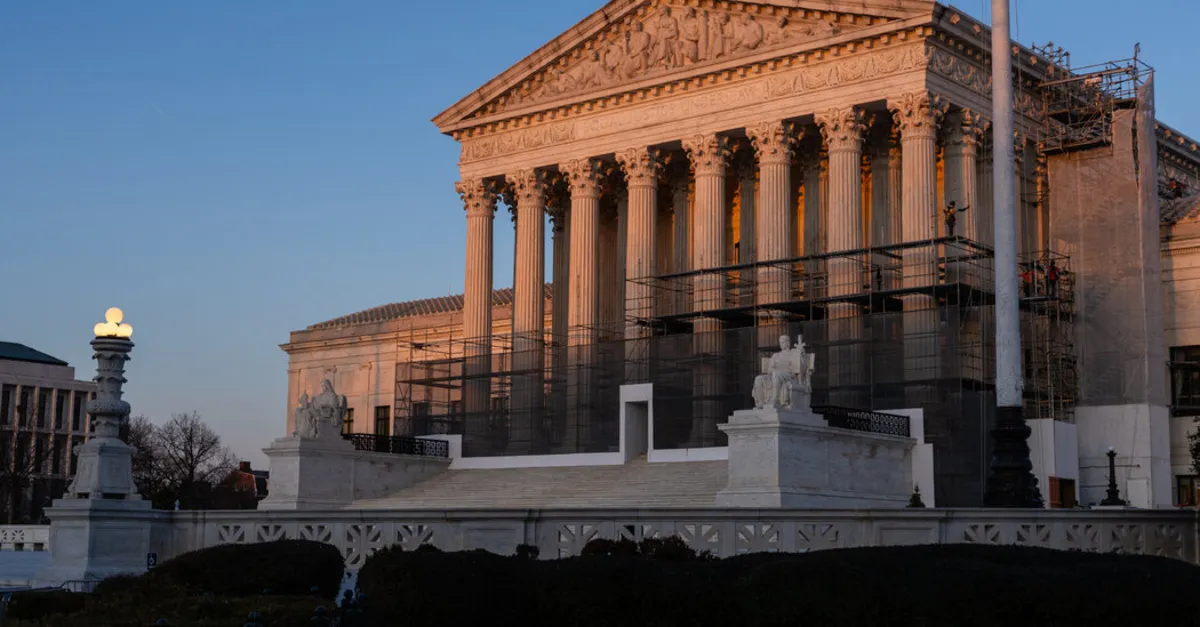
In a swift legal maneuver late Friday, the Supreme Court delivered an unsigned, one-paragraph order to temporarily halt the deportation of Venezuelan migrants detained by the Trump administration. This decision followed an urgent appeal by the American Civil Liberties Union (ACLU), which argued that the administration was planning to deport these migrants, likely to El Salvador, without providing adequate due process, as mandated by the wartime Alien Enemies Act.
The Supreme Court's ruling comes amid growing skepticism regarding the Trump administration's commitment to honoring prior judicial mandates requiring that detainees be informed of deportation plans "within a reasonable time." Justice Samuel A. Alito Jr. expressed his dissent, highlighting that the court's decision to block the deportations was "premature." He criticized the court for acting swiftly without allowing lower courts to weigh in, emphasizing the lack of explanation for the emergency order and the dubious factual basis supporting it.
Justice Alito noted that the expedited nature of the court's ruling, issued in the middle of the night, raised significant questions about its legality. He stated, "We had no good reason to think that, under the circumstances, issuing an order at midnight was necessary or appropriate."
The legal battle escalated over the weekend when attorneys indicated that the Trump administration was poised to deport a new group of Venezuelan detainees in Texas without allowing them to contest their removal. Concerns emerged that these individuals might be denied access to critical legal protections, specifically habeas corpus rights, which enable individuals in government custody to challenge their detention in court.
This legal struggle is compounded by a previous case where the administration mistakenly deported a Maryland man, Kilmar Armando Abrego Garcia, to El Salvador. A federal court has since ordered the government to facilitate his return, but compliance has yet to occur, raising alarms about the administration's handling of deportations.
Due process refers to the legal requirement that individuals receive fair treatment within the judicial system. This principle is enshrined in the Fifth Amendment of the U.S. Constitution, which asserts that no individual shall be deprived of life, liberty, or property without due process of law. Courts have consistently held that everyone in the United States, irrespective of their immigration status, is entitled to due process protections.
In contrast, habeas corpus is a legal doctrine that allows individuals in custody to challenge the legality of their detention. It is a crucial safeguard against unlawful imprisonment and has been a cornerstone of U.S. law for centuries. Legal scholars argue that the Trump administration's actions, particularly its invocation of the Alien Enemies Act, have raised serious concerns about due process violations, especially in the context of deportations.
The ACLU has been at the forefront of efforts to challenge the administration's use of the Alien Enemies Act, arguing that it has been improperly applied during peacetime. Critics assert that the administration is manufacturing a crisis to undermine fundamental rights, with Senator Chris Van Hollen emphasizing that the issue at hand is about the "fundamental principle in the Constitution" regarding due process. The ACLU's legal actions are now active across numerous courts, seeking to ensure that individuals facing deportation are afforded their legal rights.
The Supreme Court's ruling has sparked significant public outcry, with protests erupting across the nation. Demonstrators have rallied against the administration's immigration policies, emphasizing the importance of due process and the protection of civil liberties. Many signs at these protests bore the words "Due Process," reflecting widespread concern over the administration's approach to immigration enforcement.
As the legal battles unfold, the Supreme Court's decision to pause the deportations while considering the ACLU's emergency application highlights the critical intersection of immigration policy and constitutional rights in America. The ongoing situation underscores the need for vigilance in protecting the rights of all individuals, regardless of their immigration status.